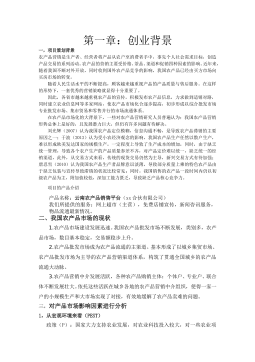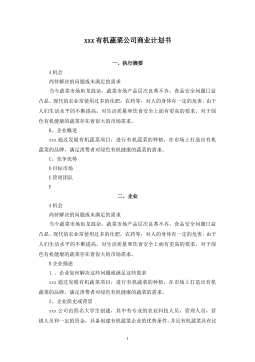浅析跨文化商务交际中的语用失误现象
浅析跨文化商务交际中的语用失误现象ABSTRACTThankstotheeconomicreformandopening-up,Chinahasbecomeacompetitiveandappealingmarket,developingever-increasinglyfast.Asaresult,moreandmoremultinationalincorporationschoosetoinvestprojectsorsetupbranchesonthisland.Facedwithsuchgreatopportunities,Chinesepeoplehaveshowedunparall...
相关推荐
-
人教PEP英语-((开学摸底测试 综合提升卷)2023-2024学年五年级英语上册开学摸底考试卷(一)(人教PEP版)VIP免费

 2024-09-30 11
2024-09-30 11 -
人教PEP英语-((开学摸底测试 重难点必刷卷)2023-2024学年四年级英语上册开学摸底考试卷(二)(人教PEP版)VIP免费

 2024-09-30 11
2024-09-30 11 -
人教PEP英语-((开学摸底测试 重难点必刷卷)2023-2024学年五年级英语上册开学摸底考试卷(二)(人教PEP版)VIP免费

 2024-09-30 10
2024-09-30 10 -
人教PEP英语-((开学摸底测试 综合提升卷)2023-2024学年四年级英语上册开学摸底考试卷(一)(人教PEP版)VIP免费

 2024-09-30 10
2024-09-30 10 -
人教PEP英语-(2023-2024学年六年级英语上册开学摸底考试卷A卷(人教PEP版)VIP免费

 2024-09-30 8
2024-09-30 8 -
人教PEP英语-(2023-2024学年六年级英语上册开学摸底考试卷B卷(人教PEP版)VIP免费

 2024-09-30 8
2024-09-30 8 -
人教PEP英语-(开学摸底测试 易错题精选卷)2023-2024学年五年级英语上册开学摸底考试卷(三)(人教PEP版)VIP免费

 2024-09-30 8
2024-09-30 8 -
外研版英语-(开学摸底测试 易错题精选卷)2023-2024学年六年级英语上册开学摸底考试卷(三)(外研版三起)VIP免费

 2024-09-30 8
2024-09-30 8 -
外研版英语-(开学摸底测试 易错题精选卷)2023-2024学年五年级英语上册开学摸底考试卷(三)(外研版三起)VIP免费

 2024-09-30 8
2024-09-30 8 -
外研版英语-(开学摸底测试 重难点必刷卷)2023-2024学年六年级英语上册开学摸底考试卷(二)(外研版三起)VIP免费

 2024-09-30 8
2024-09-30 8
相关内容
-
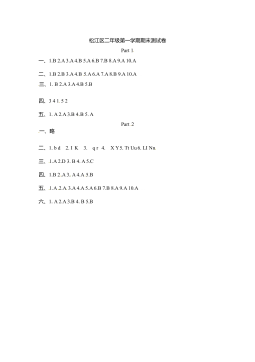
2019-2020学年2年级松江区英语上期末试卷答案
分类:中小学教育资料
时间:2024-11-19
标签:无
格式:DOCX
价格:5 积分
-
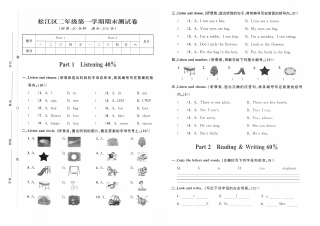
2019-2020学年2年级松江区英语上期末试卷
分类:中小学教育资料
时间:2024-11-19
标签:无
格式:PDF
价格:5 积分
-
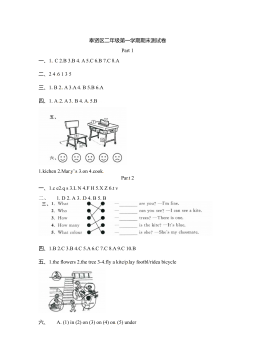
2019-2020学年2年级奉贤区英语上期末试卷答案
分类:中小学教育资料
时间:2024-11-19
标签:无
格式:DOCX
价格:5 积分
-
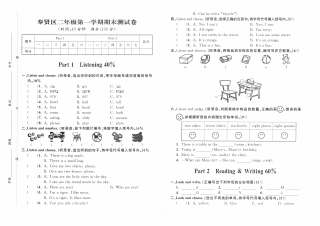
2019-2020学年2年级奉贤区英语上期末试卷
分类:中小学教育资料
时间:2024-11-19
标签:无
格式:PDF
价格:5 积分
-
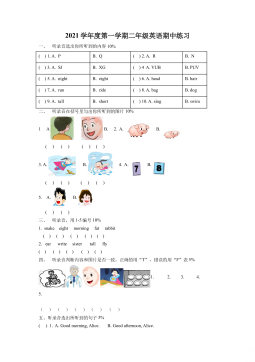
2021-2022学年牛津上海版(试用本)二年级上册期中模拟测试英语试卷(原卷版)
分类:中小学教育资料
时间:2024-11-19
标签:无
格式:DOC
价格:5 积分


